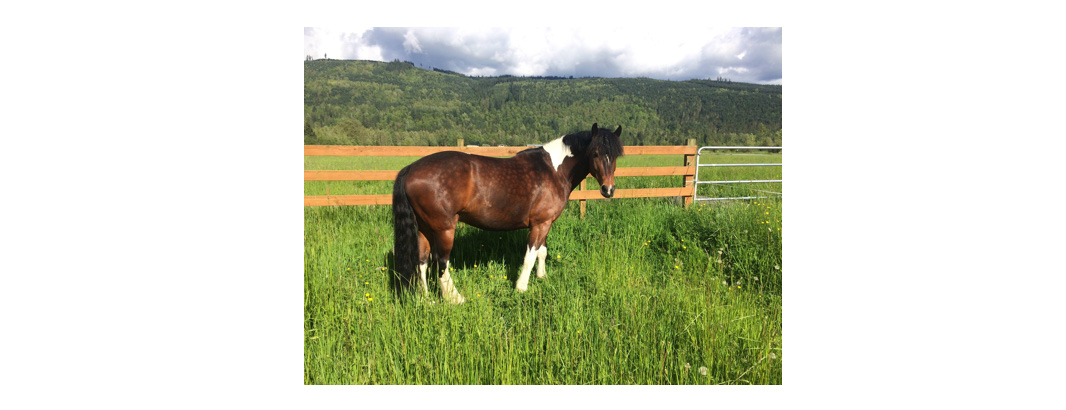9 Ways to Riefine Your Search
by Kim Roe
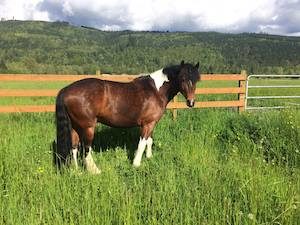
The dream has become a reality. Lists have been made and double-checked. You’re spending hours looking at horse ads, emailing sellers, and viewing videos. You lie awake nights in anticipation of your new horse. But how do you know if you’ve found the right one?
1. Get Help
Whether you’re an amateur or a professional, enlist the help and advice of a trusted and knowledgeable friend and/or trainer. Tell them your goals and why you are looking, and then listen to them. Ask them to steer you back on course if you start to drift.
2. First Impressions
The French have an expression: “coup de foudre”, which literally means “thunderbolt”. It’s used to describe the feeling of love at first sight. This is not the only consideration when buying a horse, but it is an essential one. If there isn’t a spark of admiration and joy when you look at a horse, you probably shouldn’t buy it.
Look into the horse’s eyes. What do you see? What is his expression? You need to be saying to yourself, that horse, he’s the one! This will arm you with the gusto to get through the hard times with that horse. And rest assured, there will be hard times. Horse ownership is all about love. Without it you’re setting up yourself and the horse for failure. One caveat: if you’re the type that falls in love with every horse you see, your trainer and knowledgeable friend is there to help.
3. Temperament
Does the temperament suit the job you’ve planned for this horse? Does it suit you? Don’t buy a hot and explosive horse if you are a timid rider. Don’t tell yourself you’ll change him with training. Horses, like people, don’t change their temperament. It is who they are.
4. Soundness
Is the horse historically sound? A horse that has been doing a job without problems is more likely to continue successfully. The soundest horse I ever owned was an off-the-track running quarter horse. He raced until he was 5 without an unsound day. He was never lame in the 28 years I owned him. Toughness counts.
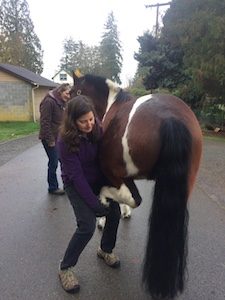
5. Enlist Your Vet
It’s worth the money to know what you are facing. Check blood, feet, joints, teeth, and do any recommended tests.
6. Movement
Does the horse move the way you need it to? Do you love (there’s that word again) the feeling of riding this horse? Are you going to look forward to riding this horse every day, or are you starting to tell yourself how you can train it to do better? Training may or may not help. A short choppy trot might always be a short choppy trot. And if a horse can’t walk, then walk away. It’s the hardest gait to fix.
7. Conformation
Minor conformation problems can be overcome if the horse has a history of soundness and has been successfully doing the job you have planned for it. Certain problems are not as important as others, some are a complete no-no. Don’t buy a ewe-necked horse if you are doing dressage or a high-necked horse for western pleasure. Asking a horse to do a job that causes him pain due to poor conformation is unkind.
8. Suits Your Lifestyle
Has the horse always been in a big barn with loads of horses around? Do you plan on bringing him home to a solitary life in a run-in shed in your back yard? This takes a strong-minded and confident horse. If he’s a needy, herd-bound type you are asking for trouble. Horses are herd animals; it’s a rare horse that can handle living alone.
Has the horse thrived on daily work but your plan is to be a fair-weather rider? Do you have kids, dogs, or other livestock around? Do you have children or small animals around and the horse has aggressive tendencies? Certain personalities are going to thrive in a backyard environment, others won’t. Again, be realistic and plan accordingly. Buy a horse that has already lived successfully in the kind of environment you will provide.
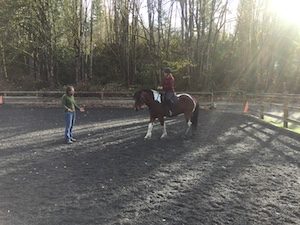
9. Listen to the Seller
Amazingly, buyers often don’t listen to the person selling the horse. It’s like not listening on a first date when your potential love says they don’t want children, then much later the relationship fails because you want children. You were warned. Don’t dismiss anything the seller says. Listen. If the seller is the closed-mouth type, ask lots of questions and if they aren’t answered, walk away.
Owning a horse is one of the greatest joys horse lovers experience. Given plenty of time and thought, you will be sure to bring home your best match.
Originally Published January 2018 Issue
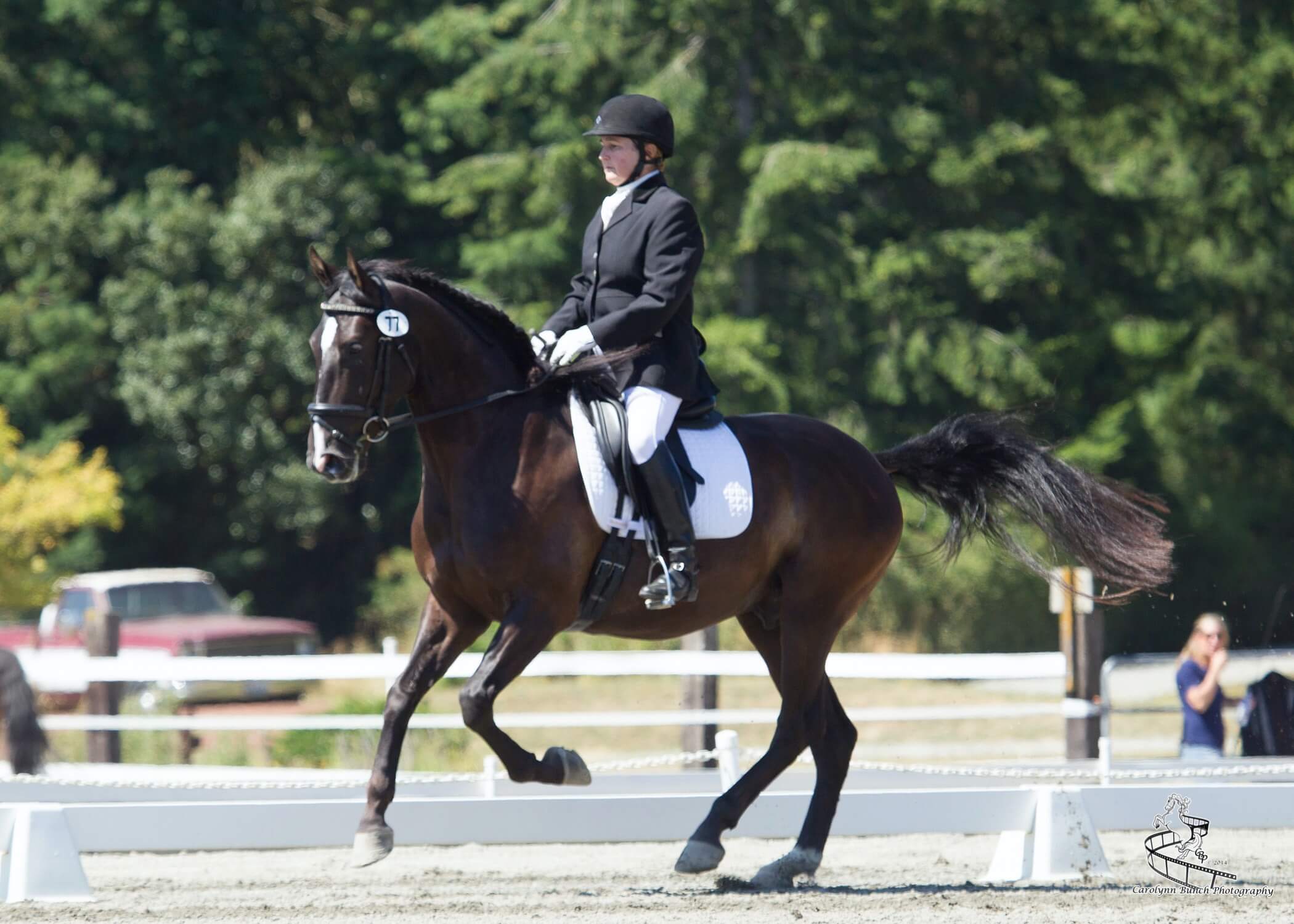
Kim Roe grew up riding on the family ranch and competed in Western rail classes, trail horse, reining, working cow, and hunter/jumper. She trained her first horse for money at 12 years old, starting a pony for a neighbor.
Kim has been a professional dressage instructor in Washington state for over 30 years, training hundreds of horses and students through the levels. In recent years Kim has become involved in Working Equitation and is a small ‘r’ Working Equitation judge with WE United.
Kim is the editor of the Northwest Horse Source Magazine, and also a writer, photographer, and poet. She owns and manages Blue Gate Farm in Deming, Washington where she continues to be passionate about helping horses and riders in many disciplines.


